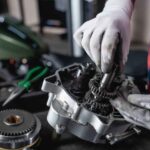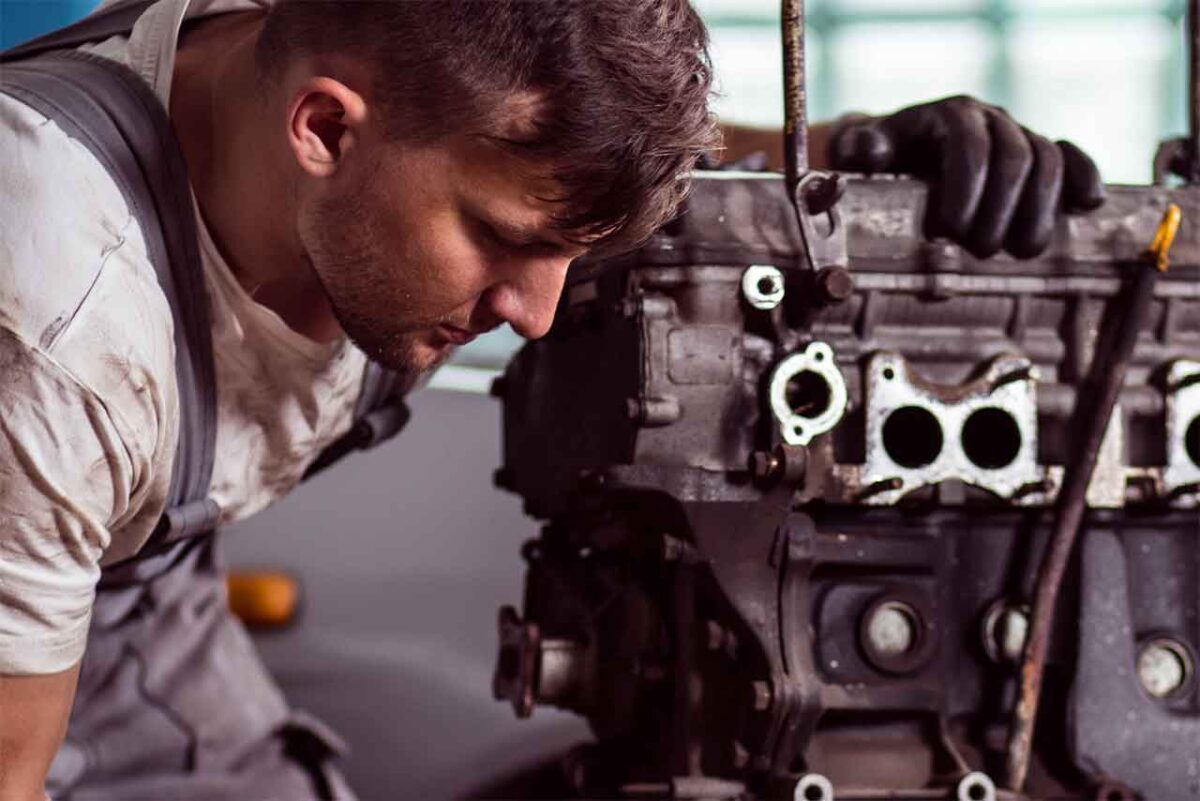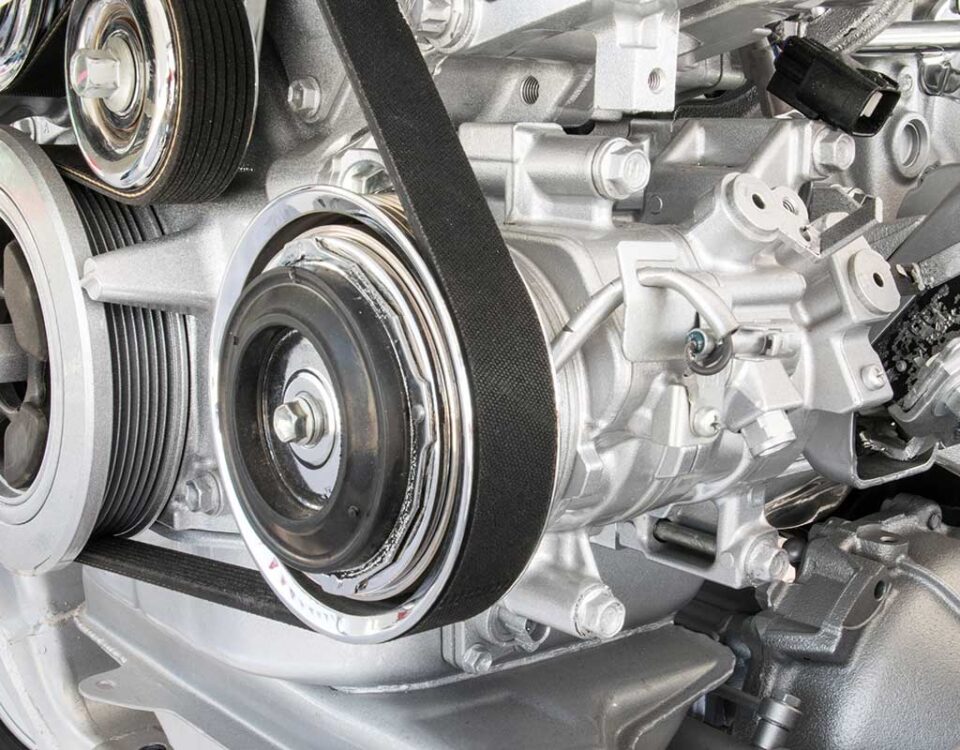
The In-depth Guide to Transmission Repair

Should I Sell My Car or Repair It?
Engines are the heart and soul of any vehicle, powering its movement and functionality. However, like any complex machinery, engines can face issues and require repairs. Engine repair is a crucial aspect of vehicle maintenance, ensuring the engine operates efficiently and extends the life of the vehicle. In this comprehensive guide, we will delve into the world of engine repair, covering essential aspects, common problems, diagnostics, repair processes, and maintenance tips.

Understanding the Basics of an Engine
Before delving into engine repair, it’s vital to have a basic understanding of how an engine works. An engine is a mechanical device that converts fuel into motion through combustion. It operates on the principle of internal combustion, where fuel is mixed with air in a combustion chamber and ignited to produce a controlled explosion. This explosion generates the force needed to move pistons, which then power the vehicle’s transmission and wheels.
Key Components of an Engine
Cylinder Block: The main structure housing the cylinders in which the pistons move.
Pistons: Cylinder-shaped components that move up and down within the cylinders, converting combustion energy into mechanical motion.
Cylinder Head: Covers the top of the cylinder block and contains the valves, spark plugs, and intake/exhaust ports.
Valves: Open and close to allow the air-fuel mixture in and exhaust gases out of the cylinders.
Spark Plugs: Ignite the air-fuel mixture in the combustion chamber.
Crankshaft: Converts the linear motion of the pistons into rotational motion, powering the transmission.
Camshaft: Controls the opening and closing of valves in synchronization with the engine’s operation.
Understanding these components is crucial for identifying problems and performing effective engine repairs.
Common Engine Problems
Engines can experience a range of issues, some of which may require immediate repair to prevent further damage. Here are some common engine problems:
1. Overheating
Overheating can be caused by various factors such as a malfunctioning thermostat, radiator issues, or a coolant leak. It can lead to severe engine damage if not addressed promptly.
2. Oil Leaks
Leaking oil can indicate problems with gaskets, seals, or the engine’s oil pan. It’s essential to fix oil leaks to prevent loss of lubrication, which can damage the engine.
3. Knocking Sounds
Knocking or banging noises from the engine can suggest problems with the combustion process or worn-out components. This requires a thorough diagnosis to pinpoint the exact issue.
4. Poor Fuel Efficiency
A sudden drop in fuel efficiency could be due to a malfunctioning fuel injector, oxygen sensor, or other engine components. Repairs can help restore optimal fuel consumption.
5. Exhaust Smoke
The color of exhaust smoke can indicate different problems – white or gray smoke may indicate coolant or oil burning, while black smoke suggests excessive fuel consumption.
6. Electrical Issues
Issues with the engine’s electrical system, such as a malfunctioning ignition or starter, can prevent the engine from starting or cause intermittent problems.
Engine Diagnostics
Accurate diagnostics are fundamental to successful engine repairs. Modern vehicles often have an onboard diagnostic system (OBD-II) that provides error codes indicating specific issues. However, a skilled mechanic will also perform additional tests such as:
Compression Testing: Measures the engine’s compression to identify worn piston rings, valves, or head gasket issues.
Cylinder Leakage Testing: Determines if the cylinders are sealing properly and if there are any leaks.
Oil Pressure Testing: Checks the oil pressure to assess the lubrication system’s health.
Exhaust Gas Analysis: Assesses emissions to determine if the engine is running efficiently.
Engine Repair Processes
Engine repair encompasses various processes, ranging from minor adjustments to major overhauls. Here are some key repair processes:
1. Oil and Filter Change
Regular oil changes are essential for engine health. Fresh oil ensures proper lubrication and reduces friction, extending the engine’s life.
2. Gasket and Seal Replacement
Damaged gaskets and seals can lead to leaks, affecting engine performance. Replacing them prevents further issues.
3. Timing Belt Replacement
Timing belts need to be replaced at specified intervals to ensure the engine’s valves and pistons remain in sync.
4. Engine Rebuilding
In cases of severe damage, an engine rebuild involves disassembling, inspecting, and replacing or repairing worn-out components to restore functionality.
5. Cylinder Head Repair
Repairing the cylinder head involves addressing issues with valves, valve seats, and camshafts, ensuring proper air and fuel flow.
6. Engine Block Repair
Repairs to the engine block may be needed for issues like cracks, warping, or cylinder wall damage.
Maintenance Tips for Engine Longevity
Proper maintenance is key to ensuring your engine operates smoothly and lasts longer. Here are some tips:
Follow the Manufacturer’s Maintenance Schedule: Adhere to the maintenance intervals outlined in your vehicle’s manual.
Regular Oil Changes: Change the oil and oil filter as recommended by the manufacturer.
Cooling System Maintenance: Keep the cooling system in good condition by flushing and refilling the coolant as needed.
Air Filter Replacement: Replace air filters regularly to ensure a clean air intake, which is vital for combustion.
Fuel System Cleaning: Periodically clean the fuel injectors and throttle body to maintain fuel efficiency and performance.
Address Issues Promptly: If you notice any unusual noises, smoke, or performance issues, have your vehicle inspected by a qualified mechanic.
Engine repair is a critical aspect of vehicle maintenance, ensuring that the heart of your vehicle functions optimally. Understanding the fundamentals of engine operation, common problems, diagnostic procedures, repair processes, and maintenance tips equips vehicle owners with the knowledge needed to maintain their engines and address issues promptly. Regular maintenance and timely repairs not only extend the engine’s lifespan but also contribute to the overall longevity and reliability of the vehicle.



